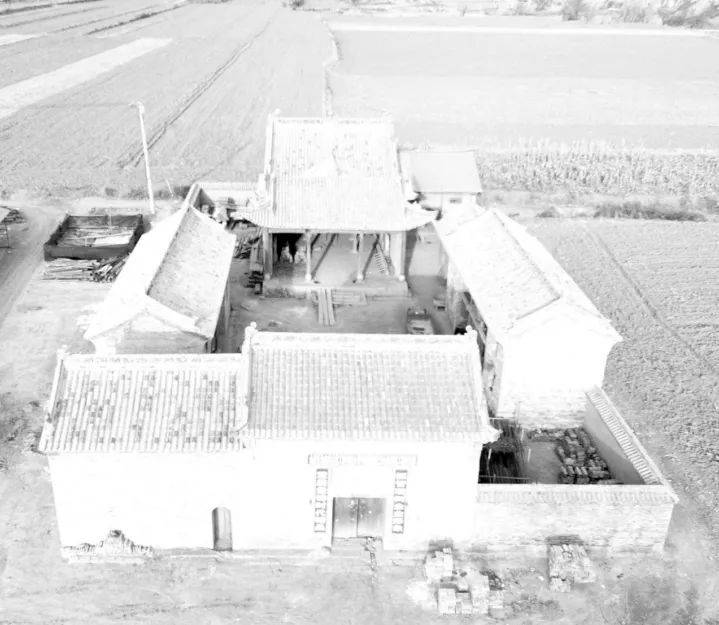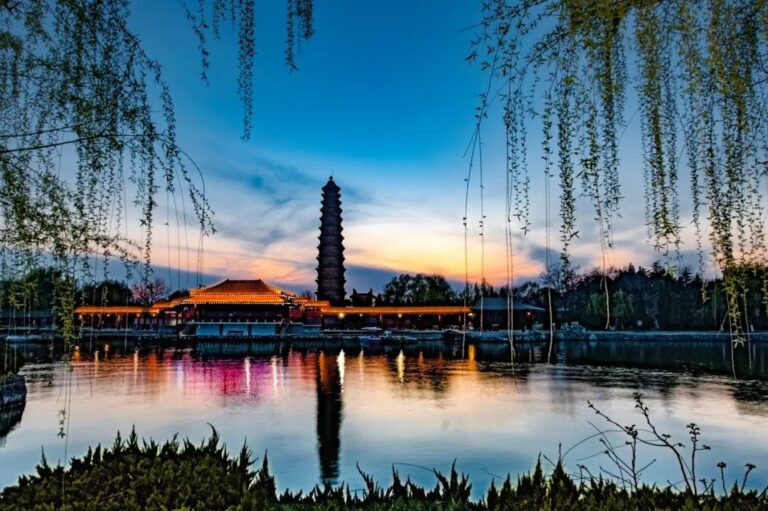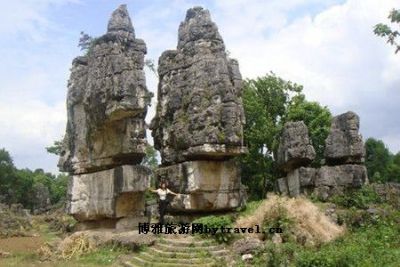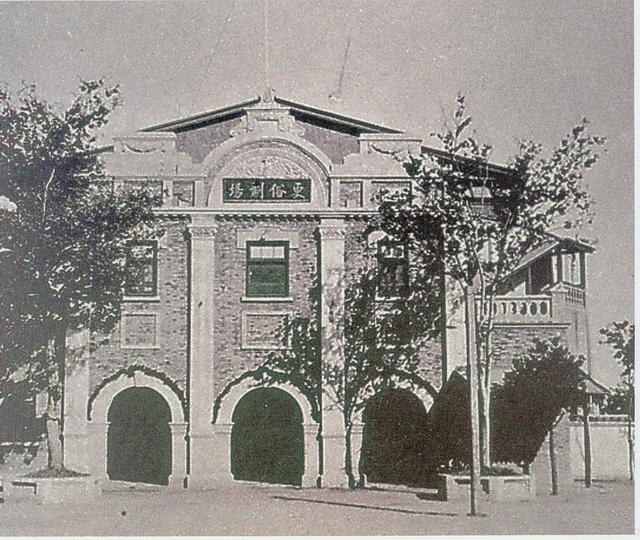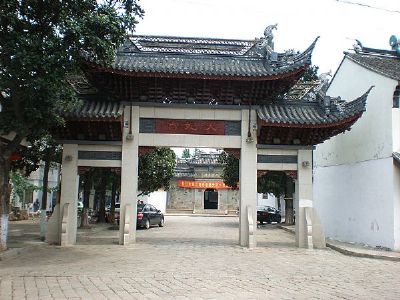Loudi Fuhoutang Adventures: Your Complete Guide to Nature, Culture, and Cuisine in Hunan
An Essential Guide to Visiting Loudi Fuhoutang
In This Guide
- An Essential Guide to Visiting Loudi Fuhoutang
- The Rich History of Loudi Fuhoutang
- Main Highlights: What to See at Loudi Fuhoutang
- Planning Your Visit: A Practical Guide
- Tickets, Hours, and Booking
- How to Get There
- Local Cuisine and Accommodation
- Frequently Asked Questions
- Final Thoughts on Your Trip
Nestled in the serene landscape of Loudi, Hunan Province, the former residence of Tseng Kuo-fan, known as Fuhoutang, is a captivating portal into the life of one of China’s most influential figures of the late Qing Dynasty. This majestic estate, often referred to as the “Prime Minister’s Mansion,” showcases a harmonious blend of architectural beauty and rich cultural history, drawing visitors from around the globe.
Constructed in 1865, Fuhoutang spans over 40,000 square meters and features a remarkable array of traditional Chinese architecture. Its main building, characterized by symmetrical courtyards and elegant corridors, reflects the essence of Ming and Qing dynasty styles. Surrounded by lush mountains and tranquil waters, this historic site not only serves as a memorial to Tseng Kuo-fan’s enduring legacy but also offers an immersive experience into the scholarly and military pursuits that defined his life.
As a central figure in the modernization of China, Tseng Kuo-fan’s contributions went beyond his military exploits; he was a philosopher, educator, and reformer whose principles of “self-cultivation and service to the state” reverberate through Chinese culture today. Fuhoutang houses an extensive collection of historical artifacts, manuscripts, and personal relics that narrate the story of Tseng’s life and the values he instilled in his family and followers.
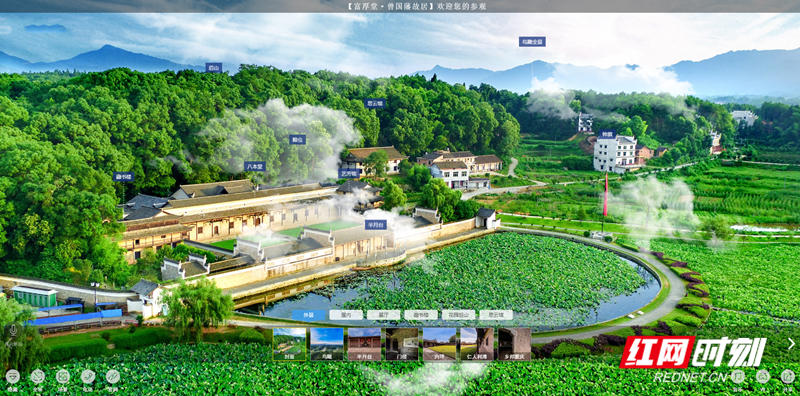
Loudi Fuhoutang.
Visiting Fuhoutang is not merely a journey through history; it is an opportunity to connect with the spirit of Hunan’s cultural heritage. Whether you are drawn by the architectural splendor, the tranquil surroundings, or the profound historical significance, Fuhoutang promises an unforgettable experience that illuminates the enduring legacy of one of China’s great leaders. Prepare to be enchanted by the beauty and history that await you at this remarkable destination.
The Rich History of Loudi Fuhoutang
Nestled in the serene surroundings of Hunan Province, Loudi Fuhoutang, also known as the Former Residence of Zeng Guofan, carries with it a rich tapestry of history that reflects the life and legacy of one of China’s most influential figures from the late Qing Dynasty. Zeng Guofan, born in 1811 in the village of Baiyangping, is celebrated for his role as a statesman, military leader, and scholar, embodying the ideals of Confucianism.
The construction of Fuhoutang began in 1851, initiated by Zeng’s younger brother, Zeng Guohuang, who purchased land specifically for this purpose. The estate, which spans over 40,000 square meters, showcases a traditional architectural style reminiscent of the Ming and Qing dynasties. Completed in 1866, the complex primarily consists of a grand central hall and several auxiliary buildings, all designed to reflect the principles of symmetry and harmony that define Chinese architecture.
Fuhoutang was originally named “Babengtang,” reflecting Zeng’s values of scholarship and family ethics, which emphasized humility and diligence. The estate served as a familial hub, where Zeng’s principles of governance and education were passed down through generations. It was here that he curated one of China’s largest private libraries, housing over 300,000 volumes at its peak, a testament to his lifelong dedication to learning.
Despite his significant achievements, including the suppression of the Taiping Rebellion, Zeng Guofan never resided in Fuhoutang. His tenure in political offices and military campaigns pulled him away from his familial roots. Tragically, many personal losses marked his life during this period, including the deaths of his parents and other family members, which he grieved deeply.
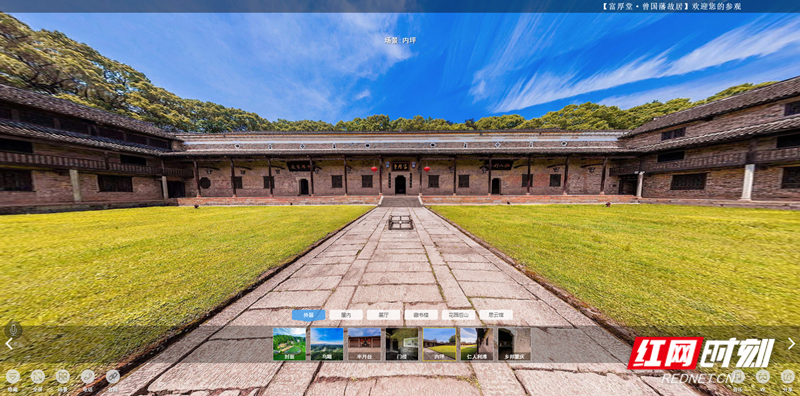
Loudi Fuhoutang.
As time passed, Fuhoutang fell into a state of neglect but was later recognized for its cultural and historical significance. In 2006, it was designated as a key cultural relic by the State Council of China, ensuring its preservation as a vital part of Chinese heritage. Today, Fuhoutang stands not only as a historical monument but also as a center for cultural tourism, where visitors can explore Zeng Guofan’s life, his contributions to modern China, and the rich traditions of Hunan culture.
The estate remains a powerful symbol of Zeng Guofan’s enduring legacy, reflecting the resilience and spirit of the Hunan people. It serves as a reminder of the values of hard work, integrity, and the pursuit of knowledge, principles that continue to resonate in contemporary Chinese society.
Main Highlights: What to See at Loudi Fuhoutang
Nestled in the picturesque countryside of Hunan Province, Loudi Fuhoutang, also known as the Former Residence of Zeng Guofan, is a remarkable historical site that offers a deep dive into the life and legacy of one of China’s most significant figures during the late Qing Dynasty. Here are the main highlights of this fascinating destination:
Architectural Grandeur
The Fuhoutang complex, covering over 40,000 square meters, showcases traditional Chinese architectural styles from the Ming and Qing dynasties. The layout is characterized by its symmetrical courtyard design, reminiscent of a nobleman’s residence, and features a series of interconnected halls, pavilions, and gardens that harmonize beautifully with the surrounding natural landscape. Visitors are immediately struck by the elegant grey bricks and flying eaves that evoke a sense of historical grandeur.
Cultural Significance
As the home of Zeng Guofan, a pivotal figure in modern Chinese history, Fuhoutang is not merely an architectural marvel but also a center of cultural heritage. Zeng was instrumental in establishing the Xiang Army and played a crucial role in suppressing the Taiping Rebellion. His philosophies on governance, education, and moral conduct are prominently displayed throughout the residence, providing visitors with insight into the values that shaped his legacy.
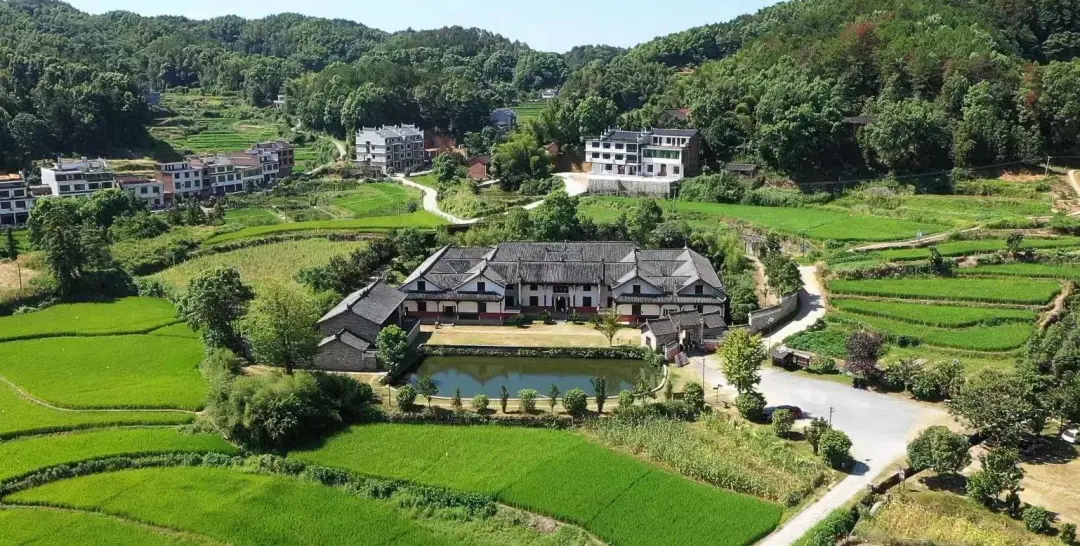
Loudi Fuhoutang.
The Library of Impressive Scale
One of the standout features of Fuhoutang is its extensive library, which once housed over 300,000 volumes of books, making it one of the largest private collections in China at the time. The library reflects Zeng’s profound love for literature and education, showcasing his belief in the importance of learning as a foundation for personal and societal success.
Scenic Surroundings
Set against the backdrop of the majestic Aoyushan Mountain, the location of Fuhoutang is as captivating as its architectural beauty. The estate is enveloped by lush greenery and tranquil waterways, providing a serene environment for contemplation and relaxation. The natural beauty surrounding the residence enhances its historical significance, making it a perfect spot for leisurely walks and photography.
Educational Opportunities
Fuhoutang serves as a vital educational resource, offering guided tours that delve into Zeng Guofan’s life, his contributions to Chinese history, and the cultural context of his era. The residence is a key site for understanding the evolution of Hunan culture and its influence on modern China, making it an essential stop for history enthusiasts and scholars alike.
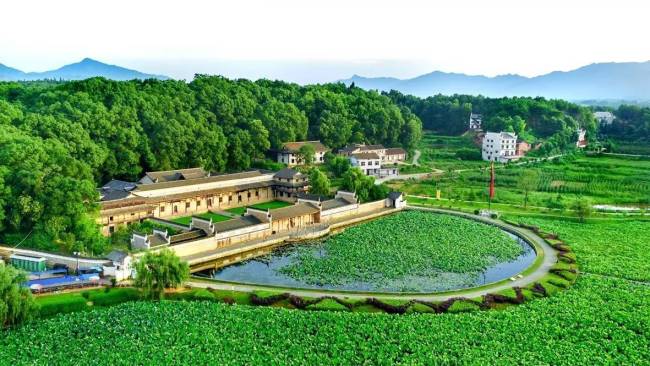
Loudi Fuhoutang.
Visitor Amenities and Accessibility
The site is equipped with modern visitor facilities, including parking, guided tours, and informative displays in both Chinese and English. Open year-round, the residence welcomes visitors to explore its rich history and enjoy the surrounding landscapes. With easy access from major cities in Hunan, including Loudi and Changsha, Fuhoutang is a convenient and enriching destination for travelers seeking to understand the cultural roots of this influential region.
In summary, Loudi Fuhoutang is not just a historic residence but a testament to the enduring legacy of Zeng Guofan and an important cultural landmark that invites exploration and reflection. Whether you’re an avid historian or simply curious about China’s past, a visit to Fuhoutang promises an immersive experience that beautifully marries history, culture, and nature.
Planning Your Visit: A Practical Guide
When planning your visit to Loudi Fuhoutang (富厚堂), the former residence of the prominent Qing dynasty statesman Zeng Guofan, there are several essential details to consider to make the most of your experience. This guide will provide you with practical information, including how to get there, what to expect, and tips for your visit.
Location and Accessibility
Fuhoutang is located in Huo Ye Town, Shuangfeng County, Loudi City, Hunan Province. It is approximately 130 kilometers from Changsha, the capital of Hunan. The site is easily accessible via various modes of transportation:
– By Car: If you are driving from Changsha, take the G60 Hukun Expressway and then switch to the S61 Yue Lin Expressway, following the signs to Fuhoutang.
– By Train: The nearest major train station is Loudi. From there, you can take a bus or taxi to reach the site. Local buses are available, but they may require transfers.
– Public Transport: If you prefer public transport, take a bus from Loudi to Shuangfeng and then a local taxi or motorcycle to the Fuhoutang.
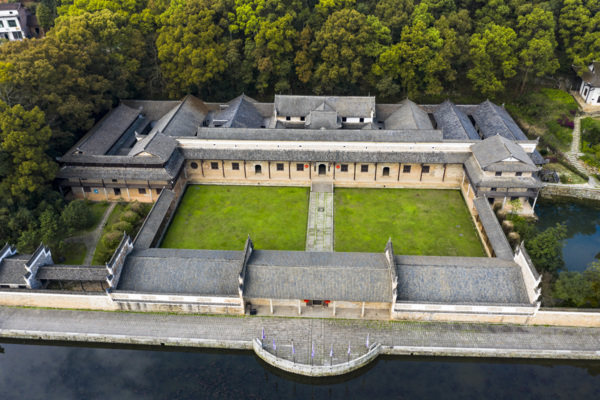
Loudi Fuhoutang.
Opening Hours and Admission Fees
Fuhoutang is open year-round, but the hours vary by season:
– May 1 to October 31: 08:00 AM – 06:00 PM
– November 1 to April 30: 08:30 AM – 05:30 PM
As for admission fees:
– General Admission: 60 RMB
– Discounted Tickets: 30 RMB for students and senior citizens above 60 years.
– Free Admission: Children under 14, seniors over 65, the disabled, and active military personnel can enter for free with valid identification.
What to Expect
As you explore Fuhoutang, you will discover a magnificent complex that embodies traditional Chinese architectural styles, particularly the Ming and Qing dynasties. The site covers over 40,000 square meters, with a main building area of approximately 9,200 square meters. Key highlights include:
– Architectural Beauty: The estate features a symmetrical layout, with stunning courtyards, elegant halls, and intricately designed wooden structures.
– Cultural Significance: Fuhoutang houses numerous artifacts related to Zeng Guofan, including manuscripts, family letters, and historical relics. It serves as a significant cultural and educational site, offering insights into the life and contributions of this influential figure.
– Natural Surroundings: The estate is set against a picturesque backdrop of lush hills, making it a serene place for a leisurely stroll or reflection.
Facilities and Services
- Guided Tours: While self-exploration is encouraged, guided tours are available for a fee. A professional guide can provide deeper insights into Zeng Guofan’s life and the significance of the residence.
- Visitor Amenities: There are rest areas and basic facilities available on-site. However, food options are limited, so it’s advisable to bring snacks or plan to eat before your visit.
- Parking: There is a spacious parking lot at the entrance, which is free for all visitors.
Tips for Your Visit
- Plan Ahead: Allocate approximately 2-3 hours for your visit to fully appreciate the site and its surroundings.
- Best Time to Visit: Spring and autumn are ideal seasons to visit, as the weather is pleasant and the natural scenery is at its best.
- Photography: Be sure to bring your camera; the architecture and gardens provide numerous opportunities for stunning photographs.
- Respect the Site: As with any historical site, please be respectful of the space and its cultural significance. Follow posted guidelines to preserve the integrity of the residence.
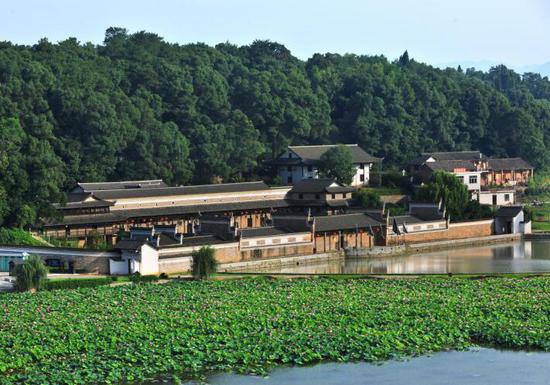
Loudi Fuhoutang.
In conclusion, a visit to Fuhoutang offers not only a glimpse into the life of one of China’s most revered historical figures but also a chance to appreciate the beauty of traditional Chinese architecture and the rich culture of Hunan Province.
Tickets, Hours, and Booking
Visiting Loudi Fuhoutang (富厚堂) offers a unique glimpse into the life and legacy of the renowned Qing Dynasty statesman, Zeng Guofan. To make your visit seamless, here is all the necessary ticket information.
Admission Details
- General Admission Ticket: 60 CNY (approximately $9 USD)
- Fuhoutang Ticket: 50 CNY (approximately $7.50 USD)
- Baiyutang Ticket: 16 CNY (approximately $2.50 USD)
Free Entry Policies
Certain groups can enter without charge, including:
– Children under 14 years old
– Seniors aged 65 and above
– Persons with disabilities
– Active military personnel and retired military personnel
– Cultural heritage workers
Half-Price Admission
Discounted tickets (50% off) are available for:
– Students aged 14 to 18
– Seniors aged between 60 and 65
– Full-time university students (undergraduate and below) with valid identification
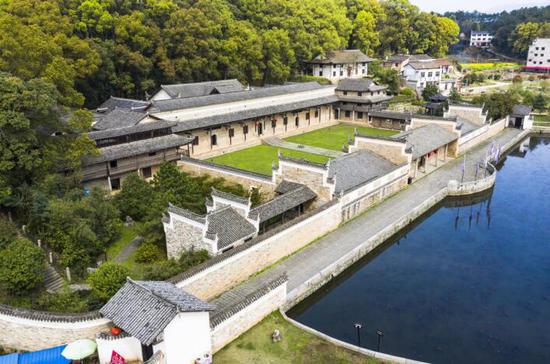
Loudi Fuhoutang.
Opening Hours
- May 1 to October 31: 08:00 AM to 06:00 PM
- November 1 to April 30: 08:30 AM to 05:30 PM
Guided Tours
For those interested in a deeper understanding of the historical and cultural significance of Fuhoutang, professional guided tours are available at an additional cost of 60 CNY per session, covering both Fuhoutang and Baiyutang.
Location
Fuhoutang is located in Hutuo Village, Heye Town, Shuangfeng County, Loudi City, Hunan Province. It is advisable to plan your visit by considering the best travel options, such as driving or hiring local transport services.
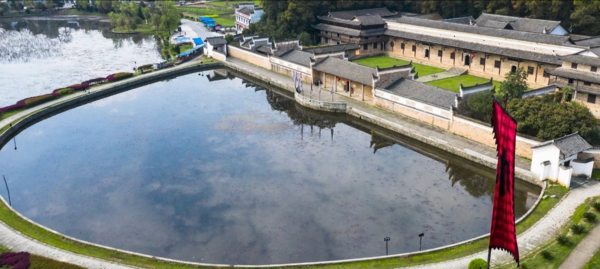
Loudi Fuhoutang.
Duration of Visit
Plan for a leisurely visit of about 2 to 3 hours to fully appreciate the architectural beauty and historical artifacts housed within Fuhoutang and its surrounding areas.
Make sure to check for any seasonal events or exhibitions that may enrich your experience during your visit!
How to Get There
Getting to Loudi Fuhoutang (富厚堂), the historic residence of prominent Qing Dynasty official Zeng Guofan, is both straightforward and accessible, making it an ideal destination for travelers looking to immerse themselves in Chinese history and culture.
By Air
The nearest major airport is Changsha Huanghua International Airport (CSX), located about 150 kilometers (approximately 93 miles) from Fuhoutang. This airport offers domestic flights from major cities across China and some international connections. Once you arrive at the airport, you have several options to reach Loudi:
- Car Rental: Renting a car gives you the flexibility to explore the area at your own pace.
- Airport Shuttle: Look for shuttle services that can take you to Loudi or surrounding cities.
- Taxi or Ride-Hailing Services: Taxis and ride-hailing apps like Didi Chuxing are available for hire.
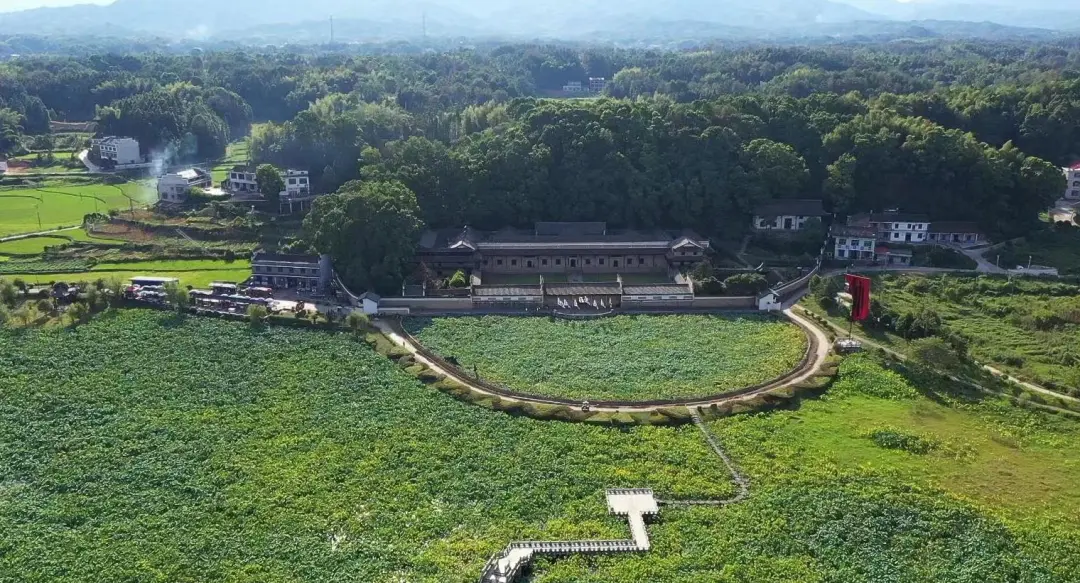
Loudi Fuhoutang.
By Train
Loudi is well-connected by rail, making it convenient for those traveling from other cities. The Loudi Railway Station serves as the main hub for high-speed and regular trains.
- From Changsha: Frequent high-speed trains operate between Changsha South Railway Station and Loudi. The journey typically takes around one to two hours.
- From Other Cities: You can also reach Loudi via trains from cities like Guangzhou, Shenzhen, and Wuhan. Check the train schedules for the most convenient options.
By Bus
For a more budget-friendly option, buses connect Loudi with various locations:
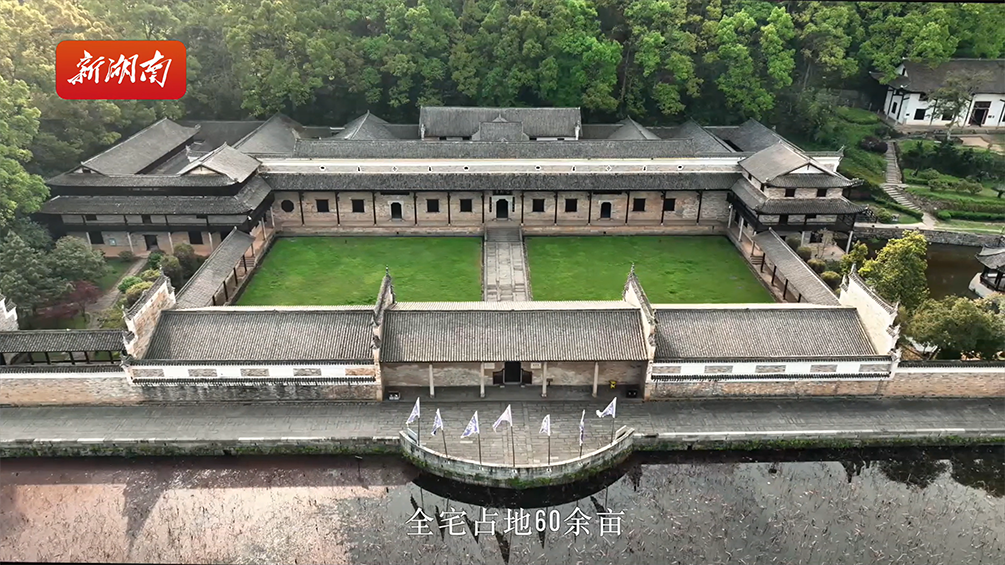
Loudi Fuhoutang.
- From Changsha: Long-distance buses leave from the Changsha West Bus Station to Loudi. The journey takes about two to three hours.
- Local Buses: Once you arrive in Loudi, you can take local buses to reach the Fuhoutang area. The fare is generally low, around 2-5 RMB per ride.
By Car
If you prefer driving, the route to Fuhoutang is well-marked:
- From Changsha: Take the G60 Hukun Expressway, then transfer to the S61 Expressway towards Loudi. The total driving time is approximately two hours.
- Parking: There is ample parking space near Fuhoutang, making it convenient for visitors.
Local Transportation
Once you’re in the Fuhoutang area, consider these local transport options:
- Motorcycle Taxis: A quick and efficient way to navigate the local streets, especially for short distances.
- Bicycles: Renting a bicycle can be a delightful way to explore the scenic surroundings, particularly in the pleasant weather.
- Walking: The area around Fuhoutang is pedestrian-friendly, allowing you to enjoy the historical architecture and natural beauty at a leisurely pace.
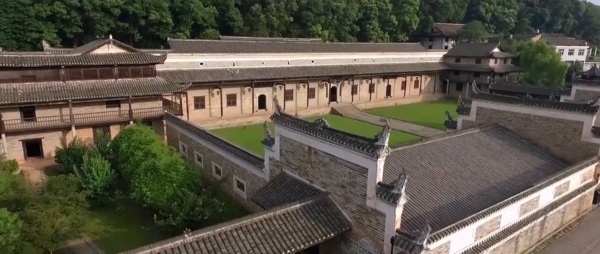
Loudi Fuhoutang.
Conclusion
Whether you’re flying into Changsha, taking a train, or driving from nearby cities, reaching Loudi Fuhoutang is quite manageable. The blend of transportation options ensures that all travelers can find a suitable way to experience this remarkable piece of Chinese history.
Local Cuisine and Accommodation
When visiting Loudi’s Fuhoutang, the historic residence of the renowned Qing Dynasty official Zeng Guofan, you’ll want to ensure your experience is complemented by delicious local cuisine and comfortable accommodations. Here’s a guide to help you navigate the best options in the area.
Culinary Delights
The region surrounding Fuhoutang is rich in Hunan cuisine, known for its bold flavors and spicy dishes. Here are some must-try eateries:
-
Xiao Xiang Cun (小湘村): This popular restaurant offers a delightful selection of traditional Hunan dishes, featuring local herbs and spices. Be sure to try their signature dishes such as Steam Fish Head with Diced Hot Red Peppers and Stir-Fried Pork with Green Peppers.
-
Hai Luo Shui Ni (海螺水泥): Located near the entrance to the tourist area, this spot is perfect for a quick meal. They serve a variety of noodle dishes and local snacks, including Bingtang Huo (蒸饺), steamed dumplings filled with savory ingredients.
-
Guo Qiu Gao Dian (国球糕点屋): If you’re in the mood for something sweet, this dessert shop offers traditional pastries and cakes, including the beloved Hunan Rice Cake and other local treats.
-
Laofanpu (老饭铺): This eatery is known for its hearty portions and traditional flavors. Their Hot and Sour Noodle Soup is a favorite among locals and visitors alike.
Places to Stay
For accommodations, you have several options ranging from budget-friendly inns to more upscale hotels that cater to different preferences:
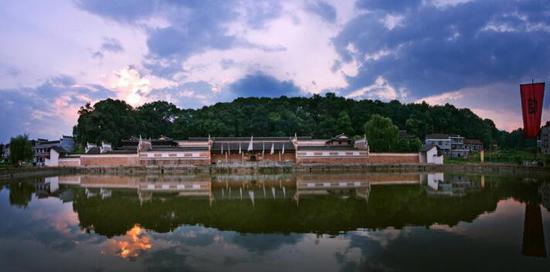
Loudi Fuhoutang.
-
Shuangfeng Xin Xing Hotel (双峰鑫兴宾馆): A comfortable budget option, this hotel provides clean rooms and basic amenities for travelers looking for a simple stay.
-
Shuangfeng Heye Mengyuan Business Hotel (双峰荷叶梦缘商务宾馆): This mid-range hotel offers more amenities, including a restaurant and convenient access to local attractions. Rooms are well-furnished and come with modern conveniences.
-
Shuangfeng Fulin Business Hotel (双峰福临商务宾馆): A bit more upscale, this hotel features spacious rooms, a fitness center, and dining options. It’s ideal for those looking for a stress-free experience after a day of exploring.
-
Shuangfeng Zhicheng Business Hotel (双峰致诚商务宾馆): Offering a blend of comfort and convenience, this hotel is suitable for both business and leisure travelers. It provides easy access to the local transportation network.
No matter where you choose to dine or stay, the vibrant atmosphere and rich flavors of Hunan cuisine, combined with comfortable lodging, will make your visit to Fuhoutang an unforgettable experience. Enjoy your journey into the heart of Chinese history and culture!
Frequently Asked Questions
-
What is Loudi Fuhoutang and why is it significant?
Loudi Fuhoutang, also known as the Former Residence of Tseng Kuo-fan, is a historical mansion located in Hunan Province, China. It is significant as the home of Tseng Kuo-fan, a prominent statesman and military leader during the late Qing Dynasty, who played a crucial role in modern Chinese history. -
Where is Fuhoutang located?
Fuhoutang is situated in the village of Futuo, Heye Town, Shuangfeng County, Loudi City, Hunan Province, China. It is surrounded by beautiful natural scenery, including the semi-circular Aoyushan Mountain. -
What are the opening hours for Fuhoutang?
The site is open daily from May 1 to October 31 from 8:00 AM to 6:00 PM, and from November 1 to April 30 of the following year from 8:30 AM to 5:30 PM. -
Is there an admission fee?
Yes, the admission fee is 50 yuan per person for Fuhoutang. Discounts are available for students, minors, and seniors. Children under 14, seniors over 65, and certain other groups may enter for free. -
How long should I plan to spend at Fuhoutang?
Visitors typically spend about 2 to 3 hours exploring Fuhoutang to fully appreciate its architecture, historical significance, and the surrounding gardens. -
Are there guided tours available?
Yes, guided tours can be arranged for an additional fee of 60 yuan per session, providing insights into the history and architecture of the site. -
What facilities are available for visitors?
Fuhoutang offers basic visitor facilities, including restrooms and parking. There is also a gift shop where visitors can purchase souvenirs related to Tseng Kuo-fan and local specialties. -
How can I get to Fuhoutang?
The easiest way to reach Fuhoutang is by car. It is accessible via major highways, and there are local buses available from Loudi City to Shuangfeng County. For visitors coming by train, take a bus from the Loudi train station to Heye Town and then walk to the site.
Final Thoughts on Your Trip
Visiting Loudi Fuhoutang is not merely an exploration of a historical site; it is a journey into the heart of Chinese culture and the legacy of one of its most influential figures, Zeng Guofan. This magnificent residence, with its stunning architecture and rich history, offers a unique window into the life and values of a man who shaped modern China. Surrounded by natural beauty and steeped in historical significance, Fuhoutang stands as a testament to resilience, wisdom, and the enduring spirit of the Hunan people.
As you wander through the halls of this esteemed estate, you will encounter not just the relics of the past but also the ideals that guided Zeng Guofan in his quest for knowledge, virtue, and service to his country. The profound messages etched in the architecture and the stories encapsulated within its walls invite visitors to reflect on their own values and aspirations.
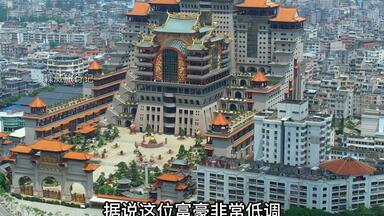
Loudi Fuhoutang.
Whether you’re a history buff, a cultural enthusiast, or simply seeking a serene getaway, Fuhoutang promises an enriching experience that resonates long after your visit. So, take the time to immerse yourself in the tranquility and wisdom that this remarkable venue offers—it’s a journey worth taking, one that connects the past with the present and inspires the future.
